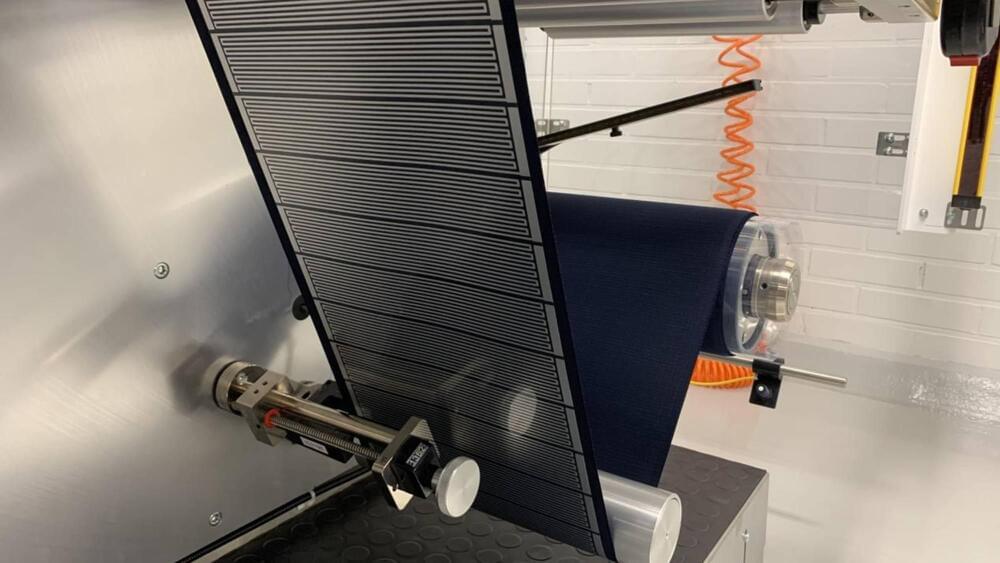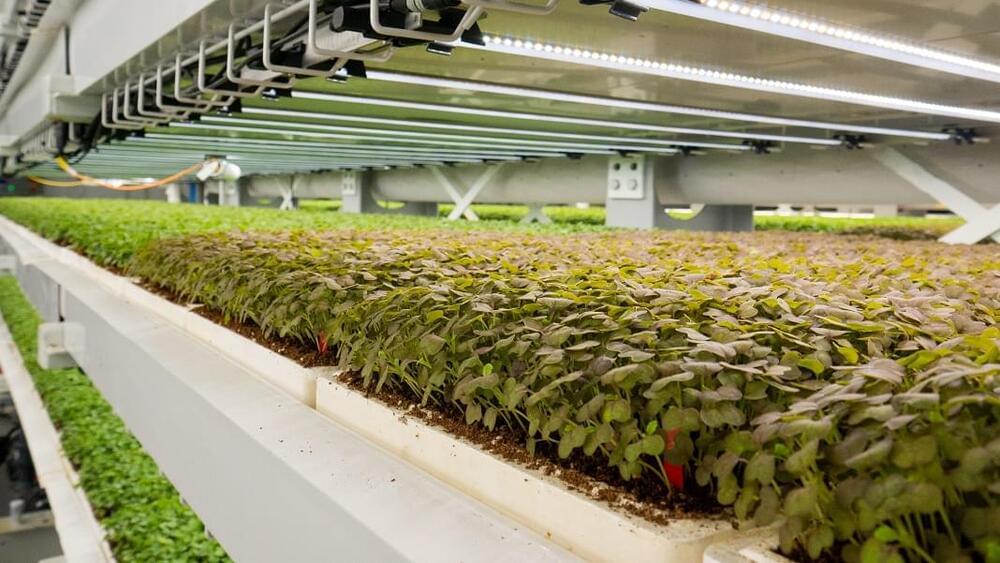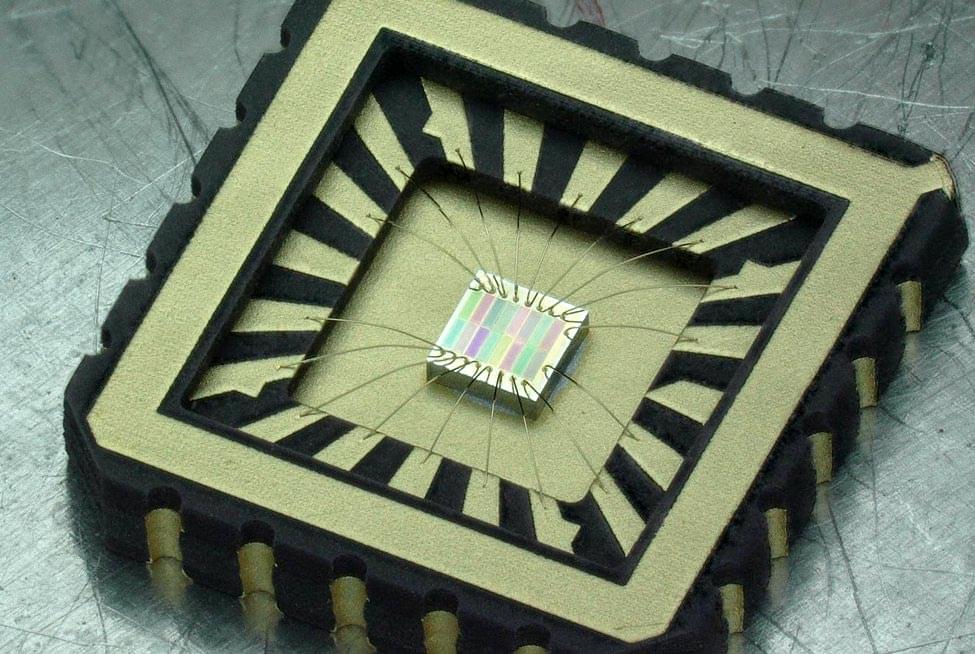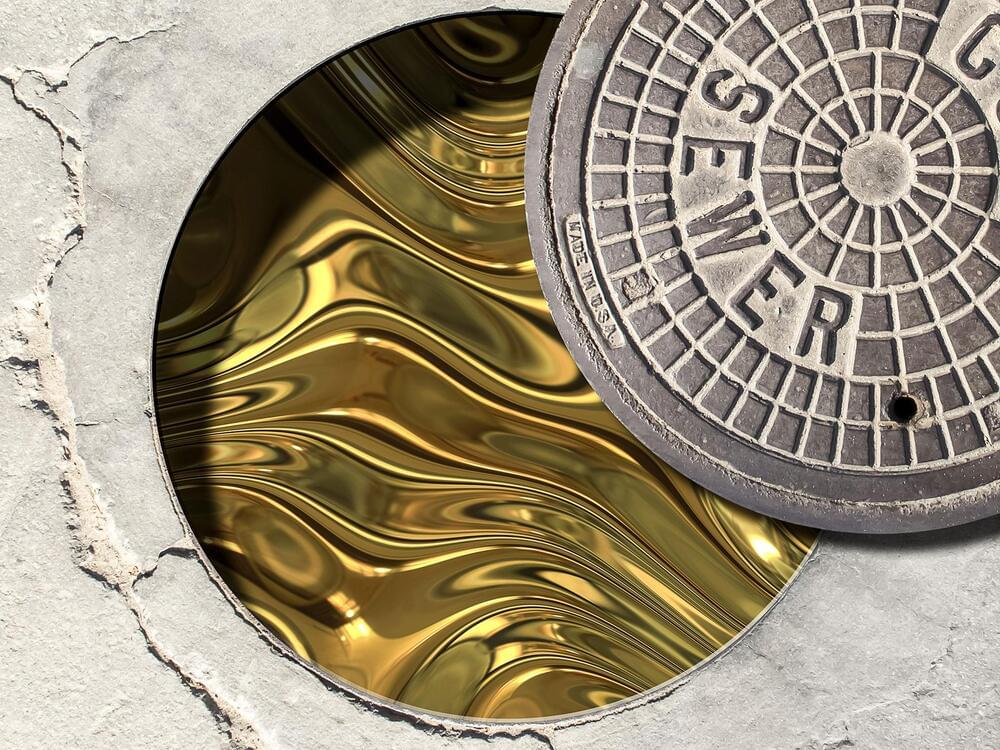As NASA prepares to send astronauts further into the cosmos than ever before, the agency aims to upgrade production of a critical fuel source: food. Giving future explorers the technology to produce nutritious, tasty, and satisfying meals on long-duration space missions will give them the energy required to uncover the great unknown.
Category: food – Page 168

VTT’s innovation delivers heat where it’s needed
The heat-producing electronic components are printed on a substrate material with a method known as roll-to-roll processing. The 0.05-millimetre thick metal mesh can then be cut to form and installed on materials such as fabrics, paper and floor laminates without any additional support layers and without significantly affecting the properties of the material – be it elasticity or breathability.
VTT Technical Research Centre of Finland has unveiled a thin and flexible precision heater suitable not only for indoor environments, but also for food packaging and clinical surfaces.

The World’s Biggest Vertical Farm Yet Will Fertilize Crops With Fish Poop
Most vertical farms are hydroponic (plant roots sit in shallow troughs of nutrient-rich water) or aeroponic (roots dangle in the air and are periodically misted). But Upward Farms uses aquaponics to fertilize its crops. What does that mean? In a nutshell, that plants are fertilized with fish poop.
To get a little more specific: besides microgreens, Upward Farms raises fish: mercury-free, antibiotic-free, hormone-free hybrid striped bass, in tanks that are separate from the trays of greens. Manure from the fish is collected and fed to the plants, making for a soil microbiome that’s more dense, fertile, and productive than that of most indoor farms, according to the company. Best of all, the company sells the fish to consumers, too.
Upward Farms claims its yields are two times above the industry average thanks to its ecological farming method, which keeps the microbial cell count in soil much higher than it would be with chemical fertilizers. “There’s a communication layer that’s been built in by millions of years of evolution between plants and microbes,” said Jason Green, Upward Farms’ CEO and cofounder. “Plants can say, ‘Hey, I’m stressed in this way, my environment is imperfect in this way, can you help me?’ and plants recruit microbes to their service.”
Delivery robots get airbags to protect you in case of collision
Autonomous vehicle maker Nuro has added external airbags to its self-driving delivery robots to protect pedestrians — but there’s reason to be skeptical about their effectiveness.
Drivers wanted: During the pandemic, more people started ordering their food, groceries, and other goods for delivery rather than venturing into stores and restaurants for them.
This has led to an increased demand for delivery drivers that companies have had trouble meeting.

Water on Mars found hidden in massive canyon
Scientists have discovered a huge store of hidden water on Mars — and it could be the key to human survival on the Red Planet.
The challenge: Researchers have already discovered ice water on Mars at or near the surface of its frigid poles. They’ve also found evidence of water — either in the form of ice or bound to minerals in the soil — deep underground closer to the Red Planet’s equator.
What they really want, though, is near-surface water closer to the equator. That’s where future Mars explorers are likely to land, and an accessible source of water would be hugely useful for their missions, not only for drinking and growing food, but also for creating oxygen and fuel.
Engineering plants to talk via bioluminescence
What if plants could tell us when pests are attacking them, or they’re too dry, or they need more fertilizer. One startup is gene engineering farm plants so they can communicate in in fluorescent colors. The result: a farmer’s phone, drone, or even satellite imagery can reveal what is happening in hundreds of acres of fields …
That leads to better food, fewer crop failures, and more revenue for farmers.
In this TechFirst with John Koetsier we meet Shely Aronov, CEO and founder at InnerPlant, and chat about what plants say, and how farmers can understand their messages.
Links:
Innerplant: https://innerplant.com.
Support TechFirst with $SMRT coins: https://rally.io/creator/SMRT/
Buy $SMRT to join a community focused on tech for good: the emerging world of smart matter. Access my private Slack, get your name in my book, suggest speakers for TechFirst… and support my work.
TechFirst transcripts: https://johnkoetsier.com/category/tech-first/

Tiny New Sensor — That Could Fit in a Smartphone — Makes the Invisible Visible
Miniaturized near-infrared sensor that could fit in a smartphone can analyze the chemical content of milk and plastics.
A TU/e research group has developed a new near-infrared sensor that is easy to make, comparable in size to sensors in smartphones, and ready for immediate use in industrial process monitoring and agriculture. This breakthrough has just been published in Nature Communications.
The human eye is a marvelous sensor. Using three different types of photoreceptor cone cells that convert visible light into signals for different colors, the eye gives essential information about the world around us.

Sewage sludge could contain millions of dollars worth of gold
Circa 2015 o.o!
If the holy grail of medieval alchemists was turning lead into gold, how much more magical would it be to draw gold from, well, poop? It turns out that a ton of sludge, the goo left behind when treating sewage, could contain several hundred dollars’ worth of metals—potentially enough to generate millions of dollars worth of gold, silver, and other minerals each year for a city of a million people.
Metals have long been known to concentrate in sewage, which mixes toilet water with effluent from industrial manufacturing, storm runoff, and anything else flushed down the drain. It’s a headache for sewage utilities that must cope with toxic metals lacing wastewater headed for streams or sludge that might otherwise be spread on farm fields.
But what if those metals had value? In a new study, scientists at Arizona State University (ASU), Tempe, quantified the different metals in sewage sludge and estimated what it all might be worth. They took sludge samples gathered from around the country and measured the metal content using a mass spectrometer that can discern different elements as they are ionized in a superhot plasma. The upshot: There’s as much as $13 million worth of metals in the sludge produced every year by a million-person city, including $2.6 million in gold and silver, they report online this week in Environmental Science & Technology.
Dr. Hamed Faridi, PhD — Executive Director — McCormick Science Institute — Herbs & Spices For Health
Culinary Herbs & Spices For Health, Wellness & Longevity — Dr. Hamed Faridi Ph.D., Executive Director, McCormick Science Institute
Dr. Hamed Faridi, Ph.D. is the founder of Faridi Strategy Group LLC and serves as the Executive Director of the McCormick Science Institute (https://www.mccormickscienceinstitute.com/).
Hamed is renowned as an innovative food industry leader, business executive, strategist, and board director. He is a visionary leader who conceives and implements innovative approaches — often using technology — to create and sustain business growth in the highly competitive food manufacturing industry. Hamed is known as someone who creates “momentum” and superior customer intimacy.
Hamed is a sought-after consultant and frequent industry speaker with valuable perspectives on the food industry and the “future of food”. He has a reputation for developing strong and trusting relationships with CEOs, executive leaders, industry peers, and board directors. He is considered an effective communicator, a good listener, and a team-mate whose insights are valued. He has significant experience in the technology, health care, and food / flavor industries.
Hamed has served on boards of directors of several organizations including Maryland University of Integrative Health, St. Joseph Medical Center, and the International Association of Cereal Chemists. He has been a director and president of both the Flavor & Extract Manufacturers Association and the American Association of Cereal Chemists. He has served on the partnership committee of a McCormick joint venture and on the advisory boards of the food science departments of four different universities.
CES 2022 Preview: Carbon Origins Wants to Merge Robot Delivery With the Metaverse
If you’re looking to get a fresh start on a new career in 2022, may I suggest a new occupation as a virtual reality robot delivery driver?
Yes, that’s a job – or at least a new gig – being offered by a startup out of Minneapolis called Carbon Origins. The company, which is building a refrigerated sidewalk delivery robot by the name of Skippy, is looking to assemble a roster of remote robot pilots who will utilize virtual reality technology to pilot Skippy around to businesses and consumer homes.
The company, which launched in early 2021 and participated in Techstars Farm to Fork accelerator this year, will be showcasing the new technology at CES 2022 in January. This past summer, the company started testing an early version of the VR-piloted robot in the above-street skyway system around St Paul, Minnesota and plans to begin testing deliveries to offices and homes in the Minneapolis market starting in January.